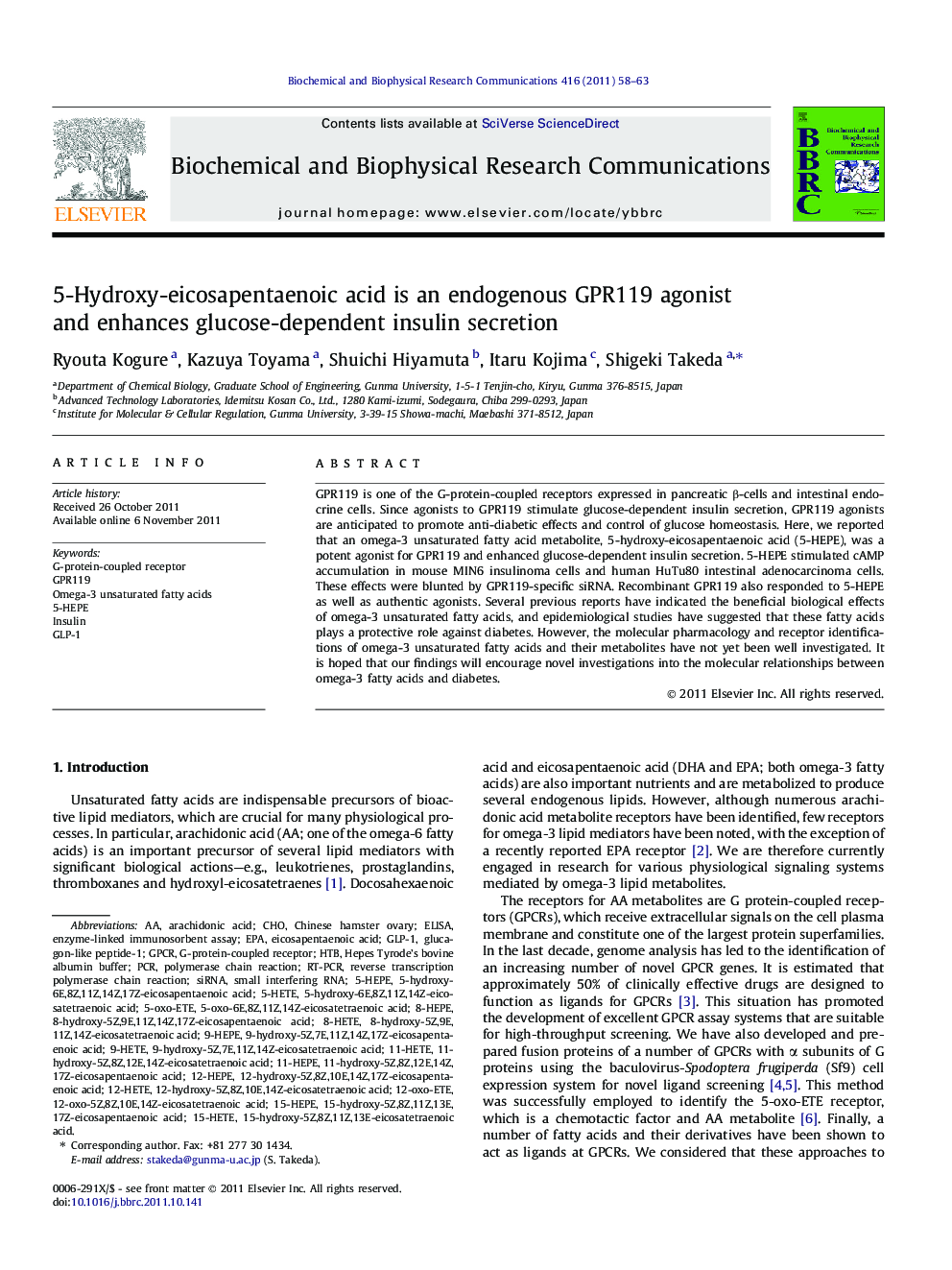| Article ID | Journal | Published Year | Pages | File Type |
|---|---|---|---|---|
| 1929991 | Biochemical and Biophysical Research Communications | 2011 | 6 Pages |
GPR119 is one of the G-protein-coupled receptors expressed in pancreatic β-cells and intestinal endocrine cells. Since agonists to GPR119 stimulate glucose-dependent insulin secretion, GPR119 agonists are anticipated to promote anti-diabetic effects and control of glucose homeostasis. Here, we reported that an omega-3 unsaturated fatty acid metabolite, 5-hydroxy-eicosapentaenoic acid (5-HEPE), was a potent agonist for GPR119 and enhanced glucose-dependent insulin secretion. 5-HEPE stimulated cAMP accumulation in mouse MIN6 insulinoma cells and human HuTu80 intestinal adenocarcinoma cells. These effects were blunted by GPR119-specific siRNA. Recombinant GPR119 also responded to 5-HEPE as well as authentic agonists. Several previous reports have indicated the beneficial biological effects of omega-3 unsaturated fatty acids, and epidemiological studies have suggested that these fatty acids plays a protective role against diabetes. However, the molecular pharmacology and receptor identifications of omega-3 unsaturated fatty acids and their metabolites have not yet been well investigated. It is hoped that our findings will encourage novel investigations into the molecular relationships between omega-3 fatty acids and diabetes.
► 5-HEPE, one of EPA metabolites enhanced glucose-dependent insulin secretion. ► The effects were blunted by GPR119-specific siRNA. ► 5-HEPE also enhanced GLP-1 secretion. ► Recombinant GPR119 responded to 5-HEPE as well as authentic agonists.
